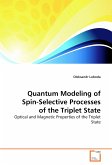This dissertation introduces a new field of DNA
photonics centering on the electronic properties of
DNA, which emerges after the initial controversies
regarding the long-range conductivity and wire-type
behavior of DNA have been widely settled. DNA
photonics study is not solely focused on charge
transfer phenomena but encompasses all possible
photophysical processes and their potentially
complex interplays. For instance, ultrafast
electronic energy migration, dissipation, and (de)
localization on the femtosecond time scale are shown
to be crucial for the description of light-induced
dynamics in DNA and have been thoroughly
investigated in this dissertation. In addition to
measurements on natural single and double-stranded
DNA, this dissertation also presents experimental
data on a series of functionalized DNA systems
obtained by state-of-the-art femtosecond
broadband pump probe spectroscopy. The results
illustrate the distance dependence of charge
transfer, emphasize the role of the initial
electronic excitation on energy transfer dynamics,
and highlight the influence of structural factors on
both processes in DNA.
photonics centering on the electronic properties of
DNA, which emerges after the initial controversies
regarding the long-range conductivity and wire-type
behavior of DNA have been widely settled. DNA
photonics study is not solely focused on charge
transfer phenomena but encompasses all possible
photophysical processes and their potentially
complex interplays. For instance, ultrafast
electronic energy migration, dissipation, and (de)
localization on the femtosecond time scale are shown
to be crucial for the description of light-induced
dynamics in DNA and have been thoroughly
investigated in this dissertation. In addition to
measurements on natural single and double-stranded
DNA, this dissertation also presents experimental
data on a series of functionalized DNA systems
obtained by state-of-the-art femtosecond
broadband pump probe spectroscopy. The results
illustrate the distance dependence of charge
transfer, emphasize the role of the initial
electronic excitation on energy transfer dynamics,
and highlight the influence of structural factors on
both processes in DNA.



